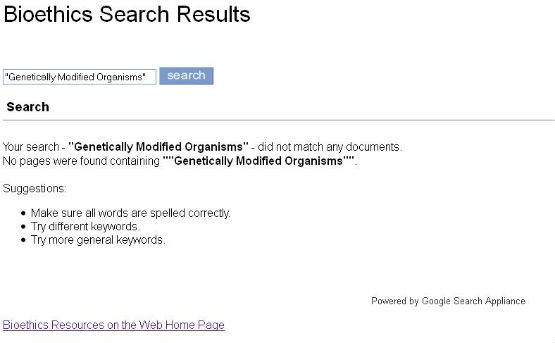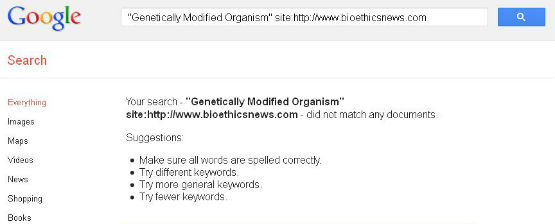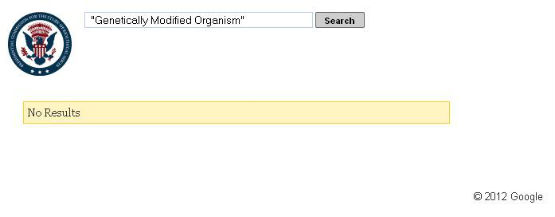“Bioethics” is not likely a word I would get to use if playing Words With Friends®. However when you write about food, something that was once living being used to fuel current living things, if you are honest about your research you eventually bump up against the subject. Breaking the word down you get “Bio,” meaning life, and “ethics” meaning right conduct.
I am merely sticking my big toe in the water here in writing on GMO’s. If you want more information on what they are, whether they are good or not, etc. you will certainly find plenty of that content on the web. I was looking to ask a different question, “are GMO’s ethical?”
So when I passed the five volume reference set aptly named, The Encyclopedia of Bioethics (Gale Cengage Learning) in the library reference section, I thought that I had found a good source on some real scholarly articles on the implications of GMO. Here is a short list of the topics covered under the letter “A:”
Abortion
Adoption
Advance Directives
Advertising
African Religions
Okay, so this is not your digested version of topics for the workplace water cooler. “Hey Carol, how are the kids doing with school? What do you think about Xenotransplantation?” Rather, this is a serious scholarly reference set that retails for $850.00. I crack the cover and look under “G” . . . nothing is listed for GMO. I look under “M” . . . nothing. I start to search the whole index, I still could not find anything on GMO’s in an exhaustive work on right conduct regarding life.
Okay, well there is always Google. I type in “bioethics” into the search field and I come up with the top ten sites on the web. I pick six of the websites listed. One is a forum run by a Professor of Bioethics. There is no mention of GMO’s. One is a large state school talking about their bioethics studies program (no search field), and I could not find anything on GMO’s either. So I find three other websites with a built-in search capability:
Next:
Next:
Okay, now this is odd. Conspicuous by its absence is the discussion on these websites of this new form of “life.” I did find this website (below), and I plan on spending a lot more time there since they have a host of great topics. I left something else in this cropped screen shot for those of you who like to find hidden clues.
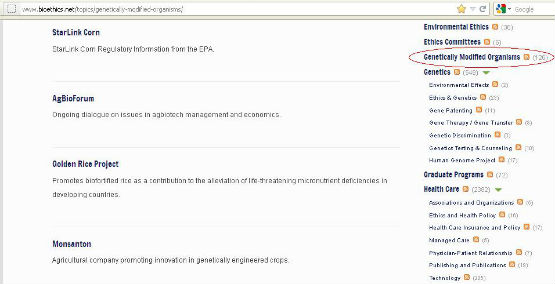
Okay, so if I can take a rock and use it to pound a wooden peg for my own industrious purposes, then so be it. But if I advance the design and put the rock on the end of a stick somehow and use additional mechanical advantage and inertia thus improving the design, then as far as I can tell, I am not crossing any lines for ethics. But, if I take a chicken that produces 6 lbs of meat in 11 weeks and tweak the genetic code to crank out a super chicken that produces 10 lbs of meat in 8 weeks—has wrong been done? Or if I take a strain of corn and in my lab create a frankenseed corn, does this cross an “ought not” line? Because the innovation process can be applied to a hammer, does not mean that it is morally neutral to do it to a hen.
Turns out a better discussion of life and a closer examination of the premises we use when we presuppose other conclusions is needed. Life is intrinsically precious, and actually pretty hard to come by. However, when you start with life already it is very persistent. In the absence of life, you cannot have life.

I look at a story in the Bible for a better perspective on this (i.e. Exodus 8:16-19). Moses and Aaron are in front of the Pharaoh pleading to let the people go. There is a sign where God commands Aaron strikes the earth with his staff and the dust turns into gnats. The sorcerers were unable to recreate the same act through their arts calling it, “The finger of God.” I often refer to life as “God’s trademark.”
So if you cannot just have life by accident and it is intrinsically precious, but does it come with “ought” statements? By definition, the study of bioethics would say, “Yes.” I would definitely agree, there are most certainly “ought” statements about life—but how do arrive at them? Answer: it depends where you start.
The magnitude and urgency of contemporary environmental problems—collectively known as the environmental crisis—form the mandate for environmental ethics: a reexamination of the human attitudes and values that influence the individual behavior and government policy toward nature. The principle approaches to environmental ethics are “anthropocentrism,” or the human-centered approach; “biocentrism,” or the life centered approach; and “ecocentrism,” or the ecosystem-centered approach. Variously related to these main currents of environmental ethics are “ecofeminism” and “deep ecology.” Moral “pluralism” in environmental ethics urges that we endorse all of these approaches and employ any one of them as circumstances necessitate (Callicott, 2003).
It makes all the difference where you start. Dr. Callicott who wrote the above statement is a very accomplished scholar in environmental ethics. Please re-read the last sentence and ask, “are bioethics or environmental ethics wertfrei (value free)?” Some things are indeed outside of ethics. For example, whether someone chooses to buy the red car or the blue car is a decision that is not governed by “ought” or “ought not.” But are living entities categorized under the same terms when they are subject to the freewill of free moral agents?
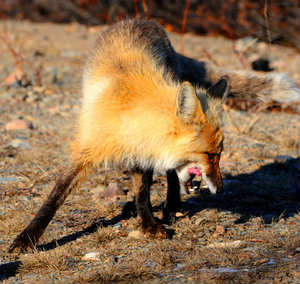
Even as a young child, I have always been appalled at the mistreatment of animals and humans—clearly “ought not” territory. This more pointed question began to take solid shape in my head in high school when I saw this video (If you are not accustomed to listening to hard rock, the lyrics are quite weighty and can be found here). In my adult years after hunting, fishing and butchering animals for meat I realize that nature is not sentimental, this is a human trait. A fox eating a rabbit in nature is not transgressing moral categories, this is just how business is handled in the natural order. Yet nature is governed by physics and chemistry, not ethics. Humans are assigned the unique ability to be self-aware regarding life and existence.
“Moral pluralism” or “relativism” is ungrounded and cannot furnish “ought” or “ought not” statements. Moreover, the environment, life or even the human race (ecocentrism, biocentrism and anthropocentrism respectively) are not enough either since they incur intractable philosophical problems because you cannot get an “ought” from an “is,” nor can you ground an “ought” in a finite object. So, I depart from these as a starting place to pick up the conversation again about GMO’s. There is a universal sense of “ought” and “ought not” that comes from somewhere and is a very real intuition with people the world over. So if we are to live, then how should we live?
The best answer I have found is that God created life (Genesis 1:1), made it intrinsically valuable (Genesis 1:31) and He put the first human stewards to work in order to take care of His creation (Genesis 2:15)—and we never see that He changed His mind about that. Somewhere along the way, “dominion” has been perverted. The question has become “can we?,” instead of “should we?”
If GMO’s are not ethical, it would be a very splintered argument to say because we are “playing God.” The same logical slippery slope can be used antagonistically to describe getting an elective surgery or taking medication, etc. Solid ground like deriving “ought” and “ought not” statements from “thou shalt” and “thou shalt not” statements seems to be the only way to arbitrate between inevitable disagreements. Because if two people disagree on a topic like GMO’s, one can say “I like them,” or “they work for me,” and be completely within the bounds of moral pluralism/relativism. However, a higher critique of the same topic presupposes that life is precious and ought to be protected not exploited and asks this question, “I know that I can produce frankenseed, but should I?”
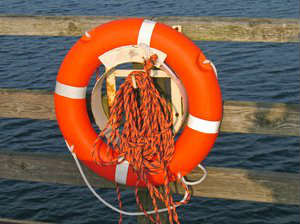
Wilson
Pro Deo et Patria
Photocredits:
Corn by mifOP7i
(Screen shots are hyperlinked to their respective web domains)
Fox by mlJLfTo
Starting Line by mC2EGpq
Orange Life Preserver by ncCH4oC
Callicott, J. (2004). Environmental Ethics. In S. Post (Ed.), The Encyclopedia of Bioethics (3rd ed. p. 757). New York: MacMillan Reference USA.

